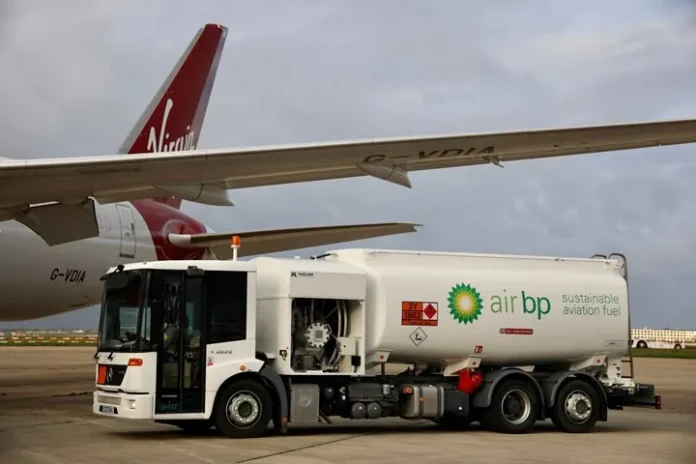On November 28, 2023, a Virgin Atlantic Boeing 787 aircraft completed the first transatlantic flight using sustainable fuels, resulting in a significant reduction of 95 tons of CO2 emissions. Powered by Rolls-Royce Trent 1000 engines, the flight departed from London and arrived in New York.
Virgin Atlantic’s initiative marks a significant milestone for sustainable aviation, as the company demonstrated that sustainable aviation fuel (SAF) can be utilized with existing infrastructure. The “Flight100,” as it’s named, operated with 100% SAF, showcasing the potential for substantial CO2 emission reductions.

Changing Nothing but the Fuel
Virgin Atlantic’s experiment holds great importance for sustainable aviation, as the flight achieved equivalent safety standards to other commercial flights without any modifications to the aircraft’s engines, body, or fuel infrastructure. The Virgin Atlantic Boeing 787 aircraft, powered by Rolls-Royce Trent 1000 engines, became the world’s first commercial aircraft to cross the Atlantic with 100% SAF, reducing CO2 emissions and non-CO2 particle emissions. According to data from the flight, SAF led to a 40% reduction in non-CO2 particle emissions.
Moreover, SAF is reported to enhance overall fuel burn efficiency. Flight100 demonstrated that SAF produced 1% more energy compared to fossil fuel and contributed to operational efficiency.
In real-world conditions, SAF currently represents only 0.1% of the global jet fuel used in flights. Existing fuel standards allow for only up to 50% SAF blend in commercial jet engines. Virgin Atlantic’s flight highlights the challenges related to infrastructure, production, and scalability, which are primarily policy and investment-related.
Flight100 utilized SAF with a unique binary mixture provided by AirBP, consisting of 88% Hydroprocessed Esters and Fatty Acids (HEFA) and 12% Synthetic Aromatic Kerosene (SAK). HEFA is derived from waste oils, while SAK is derived from waste plant sugars. Virgin Atlantic CEO Shai Weiss emphasizes the company’s readiness to fly with sustainable fuels but underscores the necessity of significantly increasing production capacity. Weiss suggests that production needs to increase by 100 times to achieve a 10% SAF blend in flights by 2030.

